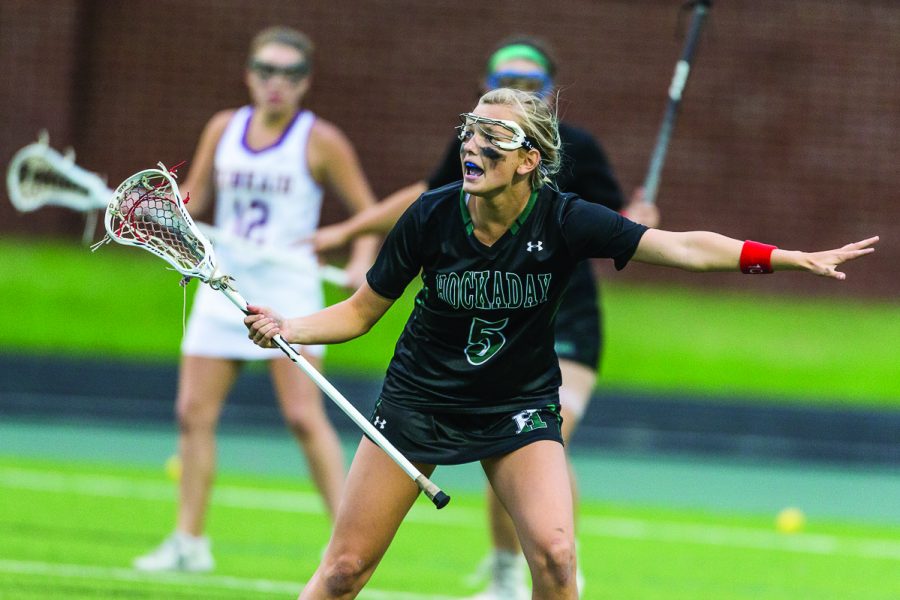Recruiting virtually
College recruiting during COVID-19
Junior Landry Grover plays a game of lacrosse. Currently, Grover is committed to the University of Denver. She says she is both excited and nervous to play on the collegiate level. photo provided by Landry Grover
March 4, 2021
Among the many, many processes affected by the COVID-19 pandemic, college recruiting is one of them. In college athletics, recruiting is the process in which college coaches fill their team rosters by finding and extending scholarships to prospective student athletes. Even under regular circumstances, the recruitment process varies from sport to sport and student to student.
“Just like every Hockaday student has their own college process, every recruited athlete has their own process too. I am always impressed by how well Hockaday students navigate the recruitment process,” college counselor Elizabeth Jones said.
Recruitment typically involved plenty of campus visits and in-person meetings. However, under the current pandemic, student athletes and coaches alike had to quickly adapt to unforeseen difficulties.
“COVID-19 has impacted the recruitment process for both colleges and students by shifting traditional face-to-face interactions between college coaches and high school students to virtual spaces,” Jones said. “Alongside college admission offices, college coaches are also reimagining new ways to connect with students.”
With COVID limiting travel, athletes had to forgo their campus visits for online calls.
“Usually you get to have official visits where you get to go up to the school, meet the team, see the locker rooms and be on campus,” University of Denver lacrosse commit Landry Grover said. “Now you’re just shown powerpoints of the school.”
According to students, not seeing the campus in-person made it more difficult to know their prospective colleges.
“Of course, I completely understand the COVID restrictions, but it is often hard to really assess a college without immersing yourself in the campus, coaches, and team,” prospective swim recruit Brooke Adams said.
COVID-19 slowed the recruitment process for students this year and the next.
“Because the class of ‘21’s recruitment was brought to a halt during COVID-19 due to the lack of meets, our recruitment has been pushed back significantly,” Adams said. “A lot of schools are still trying to finish up with ’21 recruitment before fully diving into ’22 recruitment.”
COVID-19 also made getting recognized by coaches more difficult for student athletes. Due to the pandemic, the National Collegiate Athletic Association (NCAA) decided to extend their “dead periods”—a stage in recruiting when coaches are not allowed to have any in-person contact with recruits and their families—until April 2021. During the “dead period,” athletes cannot meet coaches face-to-face, nor can coaches travel to watch high school sports, making it harder for potential recruits to be recognized.
“A lot of girls I know—teammates of mine—they aren’t looking to get recruited anymore because it’s too difficult to get recognized without the coaches seeing people on the field,” Grover said.
Because of all of these uncertainties, COVID-19 has contributed a lot more to the normal stress associated with recruitment for the students involved. How might they deal with this stress? Jones recommends reaching out to Hockaday Athletics and College Counseling.
“Student athletes at Hockaday have tremendous support available to them,” Jones said. “Together, we support all students with the recruitment process.”





